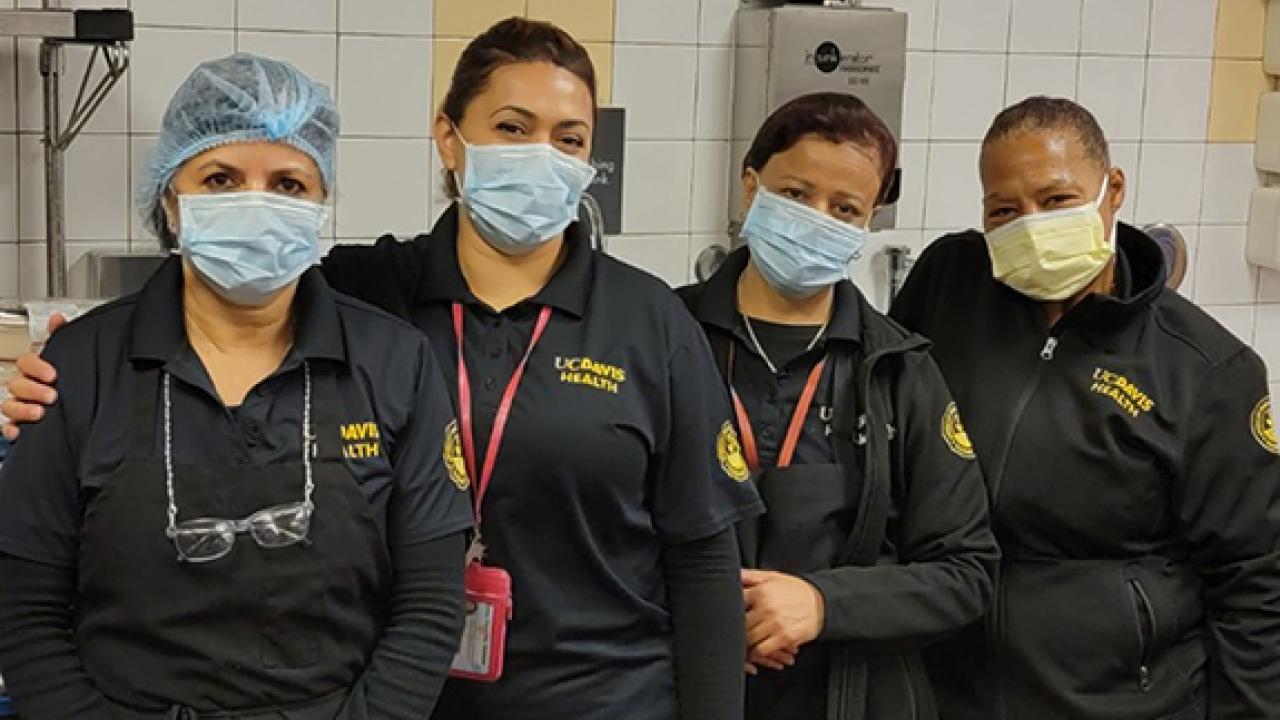
With new, innovative practices, UC Davis Health saves thousands of pounds of food waste
Originally published by UC Davis Health
(SACRAMENTO) Earlier in 2022, Practice Greenhealth named UC Davis Health one of the Top 25 Environmental Excellence award winners, the first time UC Davis Health received this top honor.
Hospitals that receive this award lead the industry in sustainability performance.
One key area that UC Davis Health leads in is the reduction in both water use and food waste.
In accordance with the State Water Board emergency regulations set forth in June 2022, UC Davis Health stopped irrigating non-functional turf throughout the Sacramento campus. Through innovative practices such as partnerships with COPIA, Food and Nutrition Services has saved 1.8 million gallons of water.
First, UC Davis Health Food and Nutrition Services has made a conscious effort to make mindful purchases based on tracked sustainability data. Then, COPIA allows UC Davis Health to safely donate food overages from our retail and patient care operations. As a large food service institution, there are constant fluctuations within the operation as a result of patient discharges or patient intakes, to an ever-changing number of visitors within our space. COPIA helps our program divert untouched food from landfills by collecting the pre-consumer accessed, edible food, and they deliver it to local nonprofits.
This partnership alone has saved 18,000 pounds of food, which has translated to 15,000 donated meals.
For pre-consumer, “unfit for consumption" food scraps and waste, UC Davis Health partners with California Safe Soil.
This group takes real, non-edible food scraps—like grape stems and melon rinds for example—from our UC Davis Health Food and Nutrition Services production kitchen and mechanically breaks it down into a liquid form. This liquid is then used to fertilize crops, which not only completes the circle of life for the food but also increases the crop yields by 20-30 percent with less water usage and less need for pesticides.
Essentially, UC Davis Health purchases from local farmers, then provides pre-consumer food scraps back to local farmers for continued “upcycling” with Cal Safe Soil.
"Food waste happens to be one of the greatest contributors to greenhouse gas emissions, so keeping less waste from landfills is contributing immensely to our effort to reduce our carbon footprint," said Kristina Cullen, UC Davis Health’s sustainability director.
This awareness was brought to action through CA Senate Bill 1383, a statewide effort to reduce emissions by reducing organic waste disposal. Many California residents and businesses are required to recycle organic waste as of Jan. 1, 2022. One way UC Davis Health is responding to SB 1383 is through these innovative waste diversion partnerships.
"We will continue to seek creative solutions to solving our climate crisis," Cullen added.
Want to hear more about UC Davis Health's sustainability efforts? Click here to listen to Dr. David Lubarsky, UC Davis Health Chief Executive Officer, discuss the health system's sustainable practices on NRC Health's Patient No More podcast.
